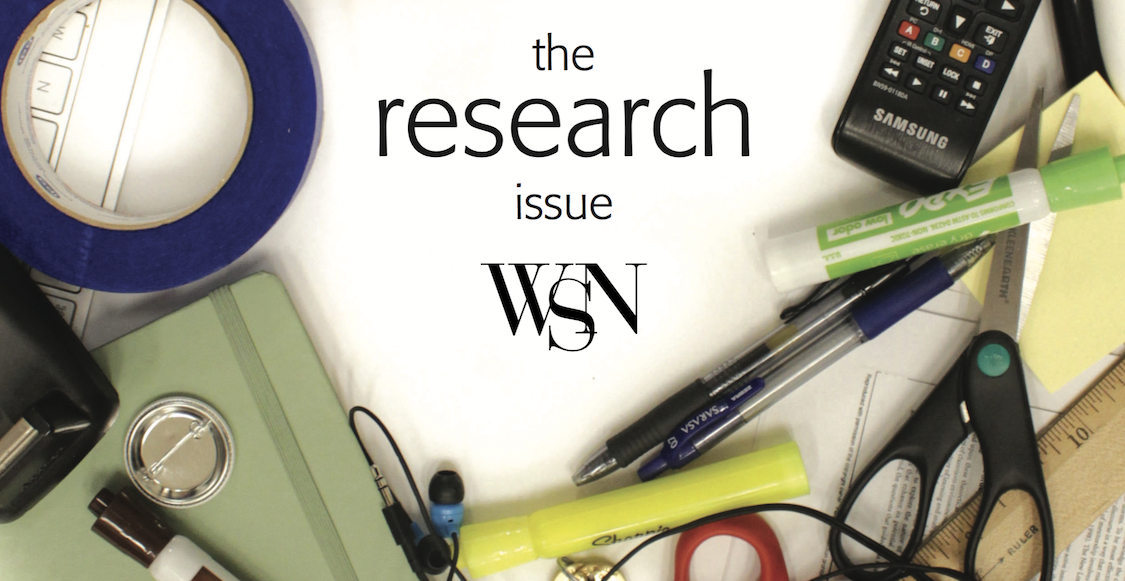The Search for Research
April 3, 2017
NYU’s status as a research university means that the school is dedicated to both education and pushing the boundaries of knowledge. The vast amount of research conducted at NYU allows students to be at the forefront of innovation. However, for undergraduates who aspire to do research, finding an opportunity isn’t always an easy task — many students who work in labs are Ph.D. students or postdoctoral fellows.
Though difficult, it is not impossible to find a research opportunity as an undergraduate at NYU. Just ask CAS freshman Sora Nithikasem.
Nithikasem works at the NYU Langone Smilow Research Center, where she studies ubiquitin proteins — the protein compounds that break down defective or unnecessary cells — to understand how they relate to cancerous cell phenotypes. When she was looking for research opportunities on campus, she originally contacted multiple labs through email.
“Usually, you can look in the listserv for the Medical Record, and they have job offerings that you can apply to,” Nithikasem said. “Otherwise, you can also just send out emails and sometimes [labs] offer interviews and trial periods.”
CAS sophomore Katie Furman is a research assistant in the Alberini Lab at NYU’s Center for Neural Science. She also got her start by reaching out to multiple researchers through email.
She received a response from Cristina Alberini, the principal investigator of Alberini Lab. Furman now does molecular and biochemical neuroscience research.
“She was the only one who answered my email, and her answer just happened to be a yes,” Furman said. “So I was really lucky about that, because most people don’t even get a response.”
Furman also said that though she found her opportunity through email, she believes that many students are able to get positions at CNS because of the CNS Research Match program — a departmental program to match students with labs — run by CNS Director of Undergraduate Studies Wendy Suzuki.
“[Suzuki] contacts all the neuro labs at NYU and finds out exactly which labs need an undergrad or two, and then she sends all that info to all the neuro undergrads who can then apply for the positions that are available,” Furman said. “I think the Research Match is the main way that a lot of people get a research position at CNS.”
Furman also said that research opportunities are available for pre-health students on the pre-health email newsletter and the bulletin boards of the science buildings — students just need to keep their eyes out.
Unlike Nithikasem and Furman, CAS junior Sahaana Sundar discovered her research position through the CNS Research Match program. Sundar works in the Basu Lab at the Neuroscience Institute in NYU Langone, where she studies the forward and backward projections between the hippocampus and the entorhinal cortex, parts of the brain that interact with each other.
“I found out about the open position in the lab through the Research Match opportunity through the Center for Neural Science,” Sundar said. “After a long application process, I was selected as an intern. Since then, I’ve learned enough to work on a Dean’s Undergraduate Research Fund [project] here.”
Sundar said she is using her DURF grant to research anatomical mapping regarding the communication between the hippocampus and entorhinal sections of the brain.
However, CNS isn’t the only department working to provide research opportunities to undergraduates. And NYU’s New York City campus isn’t the only place students can do research. CAS sophomore Nikita Reddy currently studies at NYU Tel Aviv, and her biology professor matched all the biology students with labs at Tel Aviv University, where Reddy currently works in Berman Lab with one other NYU undergraduate.
For Reddy, working as one of the only undergraduates in Berman Lab is not as intimidating as she thought it would be.
“I think I expected there to be more of a language barrier going into the lab,” Reddy said. “However, since science is presented and published in English worldwide, everyone is really comfortable with using English and talking to us in the lab.”
Reddy also said that despite being surrounded by graduate students, she is enjoying her experience, because her supervisor is very open to teaching the interns new techniques.
Sundar expressed a similar sentiment.
“I love being in an environment where there is always more to learn,” Sundar said. “Being surrounded by people who know way more than you can sound intimidating, but it’s actually the coolest way to learn.”
Email Kaitlyn Wang at [email protected].

